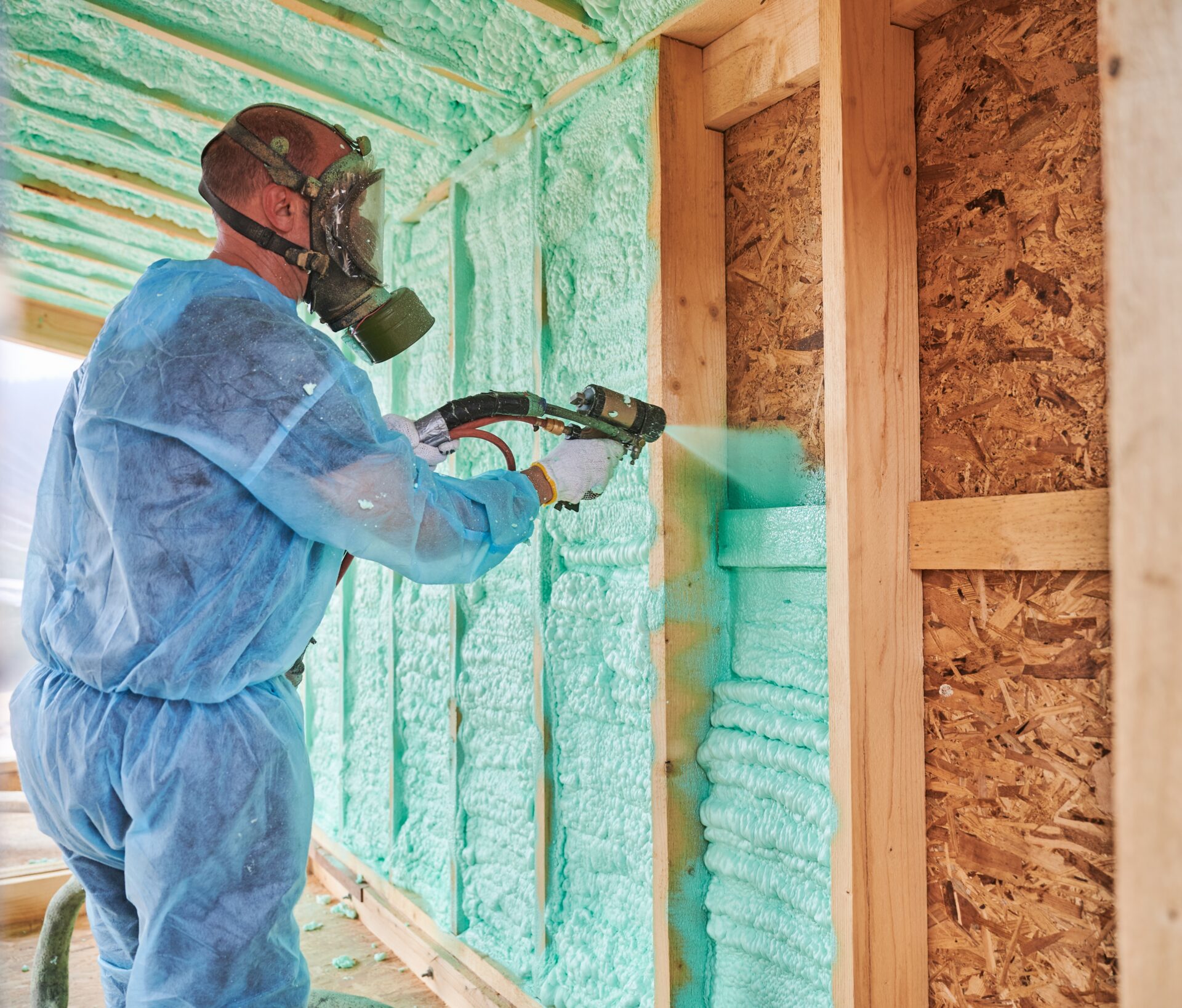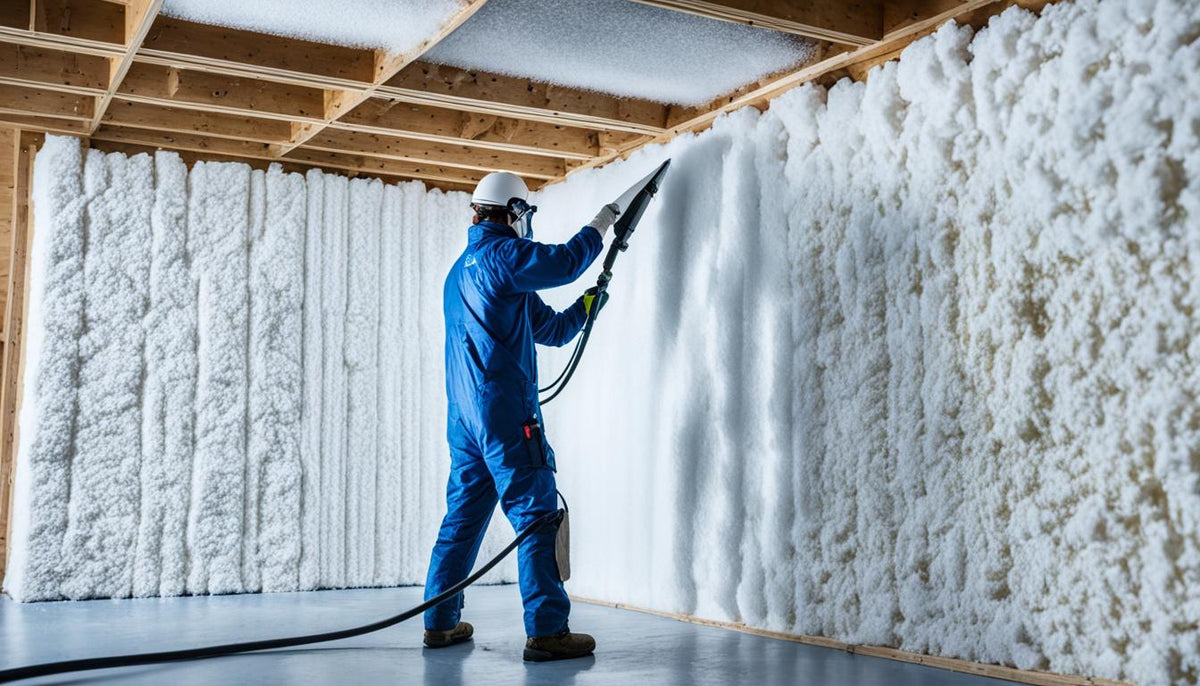Picking the Right Type of Spray Foam for Your Insulation Requirements
Picking the Right Type of Spray Foam for Your Insulation Requirements
Blog Article
Top Reasons to Choose Spray Foam for Your Next Insulation Task
When taking into consideration insulation choices for your following job, spray foam stands out because of its excellent efficiency characteristics and effectiveness benefits. Its remarkable R-value not only boosts thermal resistance but additionally adds to significant power financial savings gradually. In addition, the material's capacity to produce an impermeable seal properly decreases air seepage and lessens the risk of moisture-related problems, such as mold growth. As you weigh your choices, checking out the functional applications and lasting advantages of spray foam may disclose compelling reasons to include it right into your insulation approach.
Superior Insulation Performance

The high R-value of spray foam, which gauges its thermal resistance, is another essential advantage. Closed-cell spray foam, for example, can attain an R-value of up to 6.5 per inch, considerably exceeding fiberglass batts and cellulose. Spray foam insulation develops an airtight seal, which minimizes thermal connecting and decreases the potential for mold development due to moisture accumulation.

Energy Efficiency Benefits
The energy performance benefits of spray foam insulation are significant, additional boosting its allure as a leading option for constructing insulation. Among the key benefits is its superior thermal efficiency. Spray foam increases upon application, developing an airtight seal that reduces air leaks, which is a typical resource of power loss in standard insulation products. By effectively minimizing thermal bridging, it maintains a constant indoor temperature level, thereby lowering heating & cooling expenses.
Additionally, spray foam insulation boasts a high R-value per inch, which means it uses much more thermal resistance in much less room contrasted to alternatives like fiberglass or cellulose (Spray Foam). This efficiency not just contributes to immediate energy savings however likewise promotes long-lasting sustainability by lowering the overall energy intake of a structure
Moreover, the implementation of spray foam can certify property owners for energy performance incentives and tax obligation credit ratings, adding financial advantages to its energy-saving capabilities. In an age where energy preservation is critical, choosing spray foam insulation not just boosts convenience yet additionally lines up with eco liable techniques, making it a prudent selection for both household and industrial projects.
Moisture and Mold Resistance
Provided its one-of-a-kind structure and application approach, spray foam insulation supplies remarkable wetness and mold and mildew resistance, making it an optimal option for various settings. The closed-cell structure of spray foam produces a solid barrier that efficiently seals off possible moisture access, therefore decreasing the chance of mold growth. Unlike traditional insulation materials, which can take in water and offer a breeding ground for mold, spray foam continues to be resistant to wetness, boosting the general health and wellness of the interior atmosphere.
Additionally, the application process of spray foam entails broadening and filling up voids and fractures, making sure a tight seal that decreases air leakages. This particular not only enhances energy effectiveness however additionally assists control moisture degrees within the space. Appropriate moisture control is vital for avoiding mold and mildew, making spray foam insulation especially useful in locations prone to wetness, such as cellars and crawl areas.
In enhancement to its moisture-resistant properties, spray foam is also naturally resistant to mold and mildew growth. This particular makes certain that structures and homes continue to be healthy and secure in time, offering assurance to homeowners and building supervisors alike.
Long-Term Expense Financial Savings
Spending in spray foam insulation yields considerable long-term price financial savings, primarily through boosted energy effectiveness. Unlike conventional insulation materials, spray foam develops a closed seal that lessens air leakage. This decrease in drafts brings about reduce heating and air conditioning prices, as a/c systems do not have to function as difficult to keep comfortable interior temperature levels.
Furthermore, the superior protecting homes of spray foam imply that homes continue to be constantly comfortable year-round, decreasing reliance on energy-consuming home appliances. Gradually, these savings can collect, causing an obvious decline in energy bills.
Furthermore, spray foam insulation contributes to the longevity of your home's framework by preventing dampness buildup and mold growth, which can result in expensive repairs. With its durability and resistance to clearing up, spray foam keeps its performance for many years, making sure that the initial investment continues to repay.
Basically, selecting spray foam insulation not just boosts your home's power efficiency yet additionally equates into considerable long-lasting financial benefits, making it a sensible investment for property owners wanting to reduce expenses while enhancing comfort and my sources sustainability.
Versatile Application Alternatives
Numerous application choices make spray foam insulation a very flexible choice for a range of building tasks (Spray Foam). This adaptability permits it to be successfully made use of in domestic, industrial, and commercial settings, catering to diverse insulation needs
Spray foam can be used in attic rooms, walls, crawl areas, and even roofing systems, providing smooth protection that eliminates voids and voids where air leakages typically occur. Its ability to increase upon application makes sure a limited seal, which is necessary for power efficiency and wetness control.
Furthermore, spray foam insulation is available in different formulations, consisting of open-cell and closed-cell types, enabling customized options based upon certain task needs. Open-cell foam is lighter and far better matched for soundproofing, while closed-cell foam supplies remarkable insulation and structural integrity, making it optimal for areas exposed to wetness.
On top of that, spray foam can be applied in hard-to-reach rooms, enhancing its suitability for retrofitting existing structures. With the capacity to stick to numerous substratums, including concrete, steel, and timber, spray foam insulation stands out as a flexible choice that meets the demands of modern structure practices.
Conclusion
To conclude, spray foam insulation emerges as a superior choice for insulation tasks due to its exceptional thermal resistance, power efficiency, and capability to create airtight seals that avoid wetness and mold and mildew growth. The lasting price savings related to decreased energy expenses further enhance its allure. Furthermore, its adaptability in application across various settings underscores its practicality and efficiency. Picking spray foam insulation makes certain an extensive remedy that fulfills the demands of modern building and energy effectiveness requirements.
When it comes to attaining ideal energy effectiveness in domestic and industrial structures, spray foam insulation stands out for its superior insulation performance.The power efficiency benefits of spray foam insulation are considerable, further boosting its appeal as a top choice for constructing insulation.Spending in spray foam insulation returns substantial lasting cost savings, primarily via additional reading enhanced power efficiency.In verdict, spray foam insulation arises as a remarkable choice for insulation tasks due to its extraordinary thermal resistance, energy performance, and capacity to create airtight seals that stop dampness and mold and mildew development. Selecting spray read the article foam insulation ensures a comprehensive service that satisfies the needs of modern building and construction and energy effectiveness requirements.
Report this page